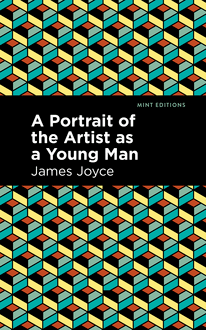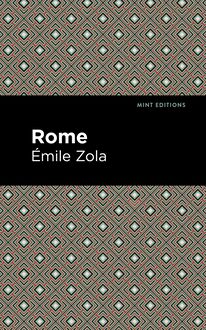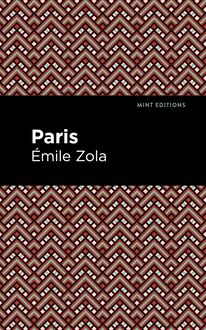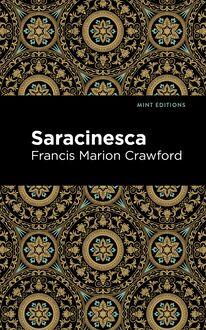-
 Univers
Univers
-
 Ebooks
Ebooks
-
 Livres audio
Livres audio
-
 Presse
Presse
-
 Podcasts
Podcasts
-
 BD
BD
-
 Documents
Documents
-
- Cours
- Révisions
- Ressources pédagogiques
- Sciences de l’éducation
- Manuels scolaires
- Langues
- Travaux de classe
- Annales de BEP
- Etudes supérieures
- Maternelle et primaire
- Fiches de lecture
- Orientation scolaire
- Méthodologie
- Corrigés de devoir
- Annales d’examens et concours
- Annales du bac
- Annales du brevet
- Rapports de stage
La lecture à portée de main
Vous pourrez modifier la taille du texte de cet ouvrage
Découvre YouScribe en t'inscrivant gratuitement
Je m'inscrisDécouvre YouScribe en t'inscrivant gratuitement
Je m'inscrisEn savoir plus
Vous pourrez modifier la taille du texte de cet ouvrage
En savoir plus

Description
A Scottish boy, who’s lost his mother and lives with an alcoholic father, overcomes various hardships to create a new and exciting life for himself. He avoids despair and chooses to perform good deeds, even to his own detriment.
Gibbie is a young boy born into a poor and abusive household. His mother has died, and his father is a drunkard who can’t provide a healthy or nurturing environment. Gibbie doesn’t speak or read but is able to navigate the Scottish streets. He’s left to his own devices and experiences both positive and traumatic events. Over time, he encounters different mentors and parental figures who provide much-needed guidance. Gibbie is a kind soul whose unfortunate circumstance eventually takes an unexpected turn.
Although the story centers a juvenile character, Sir Gibbie is a great read for all ages. It delivers an enduring message of empathy and compassion despite individual suffering. The story highlights the importance of one’s character regardless of personal loss or gain.
With an eye-catching new cover, and professionally typeset manuscript, this edition of Sir Gibbie is both modern and readable.
Sujets
Informations
| Publié par | Mint Editions |
| Date de parution | 02 mars 2021 |
| Nombre de lectures | 0 |
| EAN13 | 9781513277288 |
| Langue | English |
| Poids de l'ouvrage | 1 Mo |
Informations légales : prix de location à la page 0,0500€. Cette information est donnée uniquement à titre indicatif conformément à la législation en vigueur.
Extrait
Sir Gibbie
George MacDonald
Sir Gibbie was first published in 1879.
This edition published by Mint Editions 2021.
ISBN 9781513272283 | E-ISBN 9781513277288
Published by Mint Editions ®
minteditionbooks.com
Publishing Director: Jennifer Newens
Design & Production: Rachel Lopez Metzger
Project Manager: Micaela Clark
Typesetting: Westchester Publishing Services
C ONTENTS I. T HE E ARRING II. S IR G EORGE III. M ISTRESS C ROALE IV. T HE P ARLOUR V. G IBBIE ’ S C ALLING VI. A S UNDAY AT H OME VII. T HE T OWN -S PARROW VIII. S AMBO IX. A DRIFT X. T HE B ARN XI. J ANET XII. G LASHGAR XIII. T HE C EILING XIV. H ORNIE XV. D ONAL G RANT XVI. A PPRENTICESHIP XVII. S ECRET S ERVICE XVIII. T HE B ROONIE XIX. T HE L AIRD XX. T HE A MBUSH XXI. T HE P UNISHMENT XXII. R EFUGE XXIII. M ORE S CHOOLING XXIV. T HE S LATE XXV. R UMOURS XXVI. T HE G AMEKEEPER XXVII. A V OICE XXVIII. T HE W ISDOM OF THE W ISE XXIX. T HE B EAST -B OY XXX. T HE L ORRIE M EADOW XXXI. T HEIR R EWARD XXXII. P ROLOGUE XXXIII. T HE M AINS XXXIV. G LASHRUACH XXXV. T HE W HELP XXXVI. T HE B RANDER XXXVII. M R . S CLATER XXXVIII. T HE M UCKLE H OOSE XXXIX. D AUR S TREET XL. M RS . S CLATER XLI. I NITIATION XLII. D ONAL ’ S L ODGING XLIII. T HE M INISTER ’ S D EFEAT XLIV. T HE S INNER XLV. S HOALS A HEAD XLVI. T HE G IRLS XLVII. A L ESSON OF W ISDOM XLVIII. N EEDFULL O DDS AND E NDS XLIX. T HE H OUSELESS L. A W ALK LI. T HE N ORTH C HURCH LII. T HE Q UARRY LIII. A N IGHT -W ATCH LIV. O F A GE LV. T EN A ULD H OOSE O’ G ALBRAITH LVI. T HE L AIRD AND THE P REACHER LVII. A H IDING -P LACE FROM THE W IND LVIII. T HE C ONFESSION LIX. C ATASTROPHE LX. A RRANGEMENT AND P REPARATION LXI. T HE W EDDING LXII. T HE B URN
I
T HE E ARRING
“ C ome oot o’ the gutter, ye nickum!” cried, in harsh, half-masculine voice, a woman standing on the curbstone of a short, narrow, dirty lane, at right angles to an important thoroughfare, itself none of the widest or cleanest. She was dressed in dark petticoat and print wrapper. One of her shoes was down at the heel, and discovered a great hole in her stocking. Had her black hair been brushed and displayed, it would have revealed a thready glitter of grey, but all that was now visible of it was only two or three untidy tresses that dropped from under a cap of black net and green ribbons, which looked as if she had slept in it. Her face must have been handsome when it was young and fresh; but was now beginning to look tattooed, though whether the colour was from without or from within, it would have been hard to determine. Her black eyes looked resolute, almost fierce, above her straight, well-formed nose. Yet evidently circumstance clave fast to her. She had never risen above it, and was now plainly subjected to it.
About thirty yards from her, on the farther side of the main street, and just opposite the mouth of the lane, a child, apparently about six, but in reality about eight, was down on his knees raking with both hands in the grey dirt of the kennel. At the woman’s cry he lifted his head, ceased his search, raised himself, but without getting up, and looked at her. They were notable eyes out of which he looked—of such a deep blue were they, and having such long lashes; but more notable far from their expression, the nature of which, although a certain witchery of confidence was at once discoverable, was not to be determined without the help of the whole face, whose diffused meaning seemed in them to deepen almost to speech. Whatever was at the heart of that expression, it was something that enticed question and might want investigation. The face as well as the eyes was lovely—not very clean, and not too regular for hope of a fine development, but chiefly remarkable from a general effect of something I can only call luminosity. The hair, which stuck out from his head in every direction, like a round fur cap, would have been of the red-gold kind, had it not been sunburned into a sort of human hay. An odd creature altogether the child appeared, as, shaking the gutter-drops from his little dirty hands, he gazed from his bare knees on the curbstone at the woman of rebuke. It was but for a moment. The next he was down, raking in the gutter again.
The woman looked angry, and took a step forward; but the sound of a sharp imperative little bell behind her, made her turn at once, and re-enter the shop from which she had just issued, following a man whose pushing the door wider had set the bell ringing. Above the door was a small board, nearly square, upon which was painted in lead-colour on a black ground the words, “Licensed to sell beer, spirits, and tobacco to be drunk on the premises.” There was no other sign. “Them ’at likes my whusky ’ill no aye be speerin’ my name,” said Mistress Croale. As the day went on she would have more and more customers, and in the evening on to midnight, her parlour would be well filled. Then she would be always at hand, and the spring of the bell would be turned aside from the impact of the opening door. Now the bell was needful to recall her from house affairs.
“The likin’ ’at craturs his for clean dirt! He’s been at it this hale half-hoor!” she murmured to herself as she poured from a black bottle into a pewter measure a gill of whisky for the pale-faced toper who stood on the other side of the counter: far gone in consumption, he could not get through the forenoon without his morning. “I wad like,” she went on, as she replaced the bottle without having spoken a word to her customer, whose departure was now announced with the same boisterous alacrity as his arrival by the shrill-toned bell—“I wad like, for’s father’s sake, honest man! to thraw Gibbie’s lug. That likin’ for dirt I canna fathom nor bide.”
Meantime the boys attention seemed entirely absorbed in the gutter. Whatever vehicle passed before him, whatever footsteps behind, he never lifted his head, but went creeping slowly on his knees along the curb still searching down the flow of the sluggish, nearly motionless current.
It was a grey morning towards the close of autumn. The days began and ended with a fog, but often between, as golden a sunshine glorified the streets of the grey city as any that ripened purple grapes. To-day the mist had lasted longer than usual—had risen instead of dispersing; but now it was thinning, and at length, like a slow blossoming of the sky-flower, the sun came melting through the cloud. Between the gables of two houses, a ray fell upon the pavement and the gutter. It lay there a very type of purity, so pure that, rest where it might, it destroyed every shadow of defilement that sought to mingle with it. Suddenly the boy made a dart upon all fours, and pounced like a creature of prey upon something in the kennel. He had found what he had been looking for so long. He sprang to his feet and bounded with it into the sun, rubbing it as he ran upon what he had for trousers, of which there was nothing below the knees but a few streamers, and nothing above the knees but the body of the garment, which had been—I will not say made for, but last worn by a boy three times his size. His feet, of course, were bare as well as his knees and legs. But though they were dirty, red, and rough, they were nicely shaped little legs, and the feet were dainty.
The sunbeams he sought came down through the smoky air like a Jacob’s ladder, and he stood at the foot of it like a little prodigal angel that wanted to go home again, but feared it was too much inclined for him to manage the ascent in the present condition of his wings. But all he did want was to see in the light of heaven what the gutter had yielded him. He held up his find in the radiance and regarded it admiringly. It was a little earring of amethyst-coloured glass, and in the sun looked lovely. The boy was in an ecstasy over it. He rubbed it on his sleeve, sucked it to clear it from the last of the gutter, and held it up once more in the sun, where, for a few blissful moments, he contemplated it speechless. He then caused it to disappear somewhere about his garments—I will not venture to say in a pocket—and ran off, his little bare feet sounding thud, thud, thud on the pavement, and the collar of his jacket sticking halfway up the back of his head, and threatening to rub it bare as he ran. Through street after street he sped—all built of granite, all with flagged footways, and all paved with granite blocks—a hard, severe city, not beautiful or stately with its thick, grey, sparkling walls, for the houses were not high, and the windows were small, yet in the better parts, nevertheless, handsome as well as massive and strong.
To the boy the great city was but a house of many rooms, all for his use, his sport, his life. He did not know much of what lay within the houses; but that only added the joy of mystery to possession: they were jewel-closets, treasure-caves, indeed, with secret fountains of life; and every street was a channel into which they overflowed.
It was in one of quite a third-rate sort that the urchin at length ceased his trot, and drew up at the door of a baker’s shop—a divided door, opening in the middle by a latch of bright brass. But the child did not lift the latch—only raised himself on tiptoe by the help of its handle, to look through the upper half of the door, which was of glass, into the beautiful shop. The floor was of flags, fresh sanded; the counter was of deal, scrubbed as white almost as flour; on the shelves were heaped the loaves of the morning’s baking, along with a large store of scones and rolls and baps—the last, the best bread in the world—biscuits hard and soft, and those brown discs of delicate flaky piecrust, known as buns. And the smell that came through the very glass, it seemed to the child, was as that of the tree of life in the Paradise of which he had never heard. But most enticing of all to the eyes of the little wanderer of the
-
 Univers
Univers
-
 Ebooks
Ebooks
-
 Livres audio
Livres audio
-
 Presse
Presse
-
 Podcasts
Podcasts
-
 BD
BD
-
 Documents
Documents
-
Jeunesse
-
Littérature
-
Ressources professionnelles
-
Santé et bien-être
-
Savoirs
-
Education
-
Loisirs et hobbies
-
Art, musique et cinéma
-
Actualité et débat de société
-
Jeunesse
-
Littérature
-
Ressources professionnelles
-
Santé et bien-être
-
Savoirs
-
Education
-
Loisirs et hobbies
-
Art, musique et cinéma
-
Actualité et débat de société
-
Actualités
-
Lifestyle
-
Presse jeunesse
-
Presse professionnelle
-
Pratique
-
Presse sportive
-
Presse internationale
-
Culture & Médias
-
Action et Aventures
-
Science-fiction et Fantasy
-
Société
-
Jeunesse
-
Littérature
-
Ressources professionnelles
-
Santé et bien-être
-
Savoirs
-
Education
-
Loisirs et hobbies
-
Art, musique et cinéma
-
Actualité et débat de société
- Cours
- Révisions
- Ressources pédagogiques
- Sciences de l’éducation
- Manuels scolaires
- Langues
- Travaux de classe
- Annales de BEP
- Etudes supérieures
- Maternelle et primaire
- Fiches de lecture
- Orientation scolaire
- Méthodologie
- Corrigés de devoir
- Annales d’examens et concours
- Annales du bac
- Annales du brevet
- Rapports de stage




















